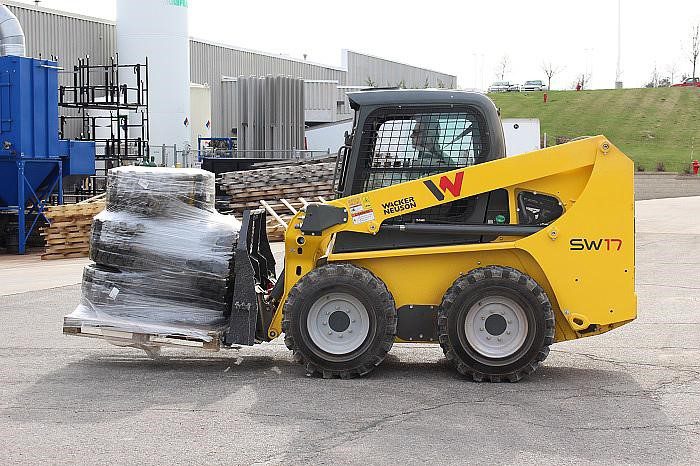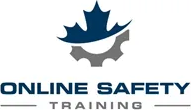Skid Steer Operator Training

The Crucial Role of Skid Steer Operator Training in Canadian Construction Sites and Workplaces:
Skid steer loaders, often referred to as skid steers, are versatile and compact machines that have become integral to various industries across Canada. Their agility and multifunctional capabilities make them indispensable for a wide range of tasks on construction sites, in agriculture, landscaping, and more. However, their power and complexity also pose safety risks when not operated correctly. To ensure the safety of workers, the protection of assets, and the smooth execution of projects, skid steer operator training is of utmost importance in Canadian construction sites and workplaces. In this article, we will explore the significance of skid steer operator training and why it is crucial for both safety and efficiency.
- Safety First: Protecting Lives and Assets
The primary reason for skid steer operator training is safety. Skid steers are powerful machines with multiple moving parts, and if not operated with caution and expertise, they can pose significant safety risks. Operator training ensures that individuals handling skid steers have the knowledge and skills needed to prevent accidents and protect lives. Here’s why safety should always come first:
a. Prevention of Accidents: Skid steer accidents can result in serious injuries or even fatalities. Training equips operators with the know-how to avoid accidents through proper operation and safety procedures.
b. Protection of Workers: Operators who receive proper training are less likely to make mistakes that could harm themselves or others working on the site.
c. Asset Protection: Skid steers are valuable assets, and accidents involving these machines can lead to costly repairs or replacements. Proper training reduces the risk of equipment damage.
d. Legal Compliance: Canadian occupational health and safety regulations require employers to provide training to workers using heavy machinery like skid steers. Compliance with these regulations is essential to avoid legal consequences.
- Enhanced Efficiency and Productivity
Effective skid steer operator training goes beyond safety; it also focuses on improving efficiency and productivity. Skilled operators can complete tasks more quickly and accurately, contributing to the overall success of construction projects. Here are some ways in which training enhances efficiency:
a. Faster Task Completion: Skilled operators can navigate skid steers with precision, leading to faster task completion and project timelines.
b. Reduced Downtime: Properly trained operators are less likely to encounter accidents or equipment malfunctions, reducing downtime on the job site.
c. Cost Savings: Efficient skid steer operation minimizes fuel consumption and wear and tear on the machine, resulting in cost savings for employers.
d. Resource Allocation: Skilled operators make optimal use of the machine’s capabilities, ensuring that resources are allocated effectively and efficiently.
- Skill Development and Proficiency
Skid steer operator training programs provide a structured curriculum that covers essential aspects of machine operation. These programs help operators develop and refine their skills, leading to increased proficiency. The key aspects of skill development include:
a. Equipment Familiarity: Operators become intimately familiar with the specific skid steer model they will operate, including its controls, features, and limitations.
b. Safe Operating Practices: Training programs emphasize safe operating practices, including pre-operation inspections, machine startup and shutdown procedures, and load management.
c. Precision and Control: Skilled operators can maneuver skid steers with precision, making them ideal for tasks that require careful handling and control.
d. Problem-Solving Skills: Training equips operators with the ability to troubleshoot and address common issues that may arise during machine operation.
e. Adaptability: Proficient operators can adapt to different job site conditions and effectively use skid steers for various tasks, maximizing their utility.
- Risk Mitigation
In the construction industry, risks are inherent, but they can be managed and mitigated through proper training and preparation. Skid steer operator training plays a crucial role in risk mitigation by:
a. Hazard Awareness: Training programs educate operators about potential hazards on the job site, such as uneven terrain, overhead obstacles, and other workers.
b. Emergency Response: Skilled operators are better equipped to respond to unexpected situations, such as equipment malfunctions or accidents, in a calm and effective manner.
c. Preventive Maintenance: Training often includes information on routine equipment maintenance, which helps prevent breakdowns and costly repairs.
d. Compliance with Regulations: By providing skid steer operator training, employers demonstrate their commitment to complying with Canadian safety regulations, reducing the risk of penalties or legal liabilities.
- Long-term Skill Retention
Skid steer operator training is not a one-time event but an ongoing process that emphasizes continuous learning and skill development. This approach ensures that operators retain their skills and knowledge over the long term, benefiting both employers and workers. Long-term skill retention leads to:
a. Consistency: Skilled operators consistently perform at a high level, ensuring that tasks are completed to the same standards every time.
b. Adaptation to New Technologies: Operators who receive ongoing training are more likely to adapt to technological advancements in skid steer design and operation.
c. Reduced Accidents: Operators with continuously updated skills are less likely to become complacent or develop bad habits that can lead to accidents.
d. Enhanced Career Opportunities: Skilled operators are in demand in the job market and have more opportunities for career growth.
- Compliance with Occupational Health and Safety Regulations
In Canada, occupational health and safety regulations require employers to provide training to workers operating heavy machinery, including skid steers. Compliance with these regulations is not only a legal obligation but also a moral responsibility. Failure to provide proper training can result in legal consequences, fines, and reputational damage to the organization. Skid steer operator training ensures compliance with occupational health and safety regulations, reducing the risk of legal liabilities and associated costs.
Skid steer loaders are indispensable machines in Canadian construction sites and workplaces, offering versatility and power for a wide range of tasks. However, their efficient and safe operation hinges on the skills and expertise of operators. Skid steer operator training is not just a requirement but a critical investment in safety, efficiency, and overall project success. By prioritizing training, employers protect lives, assets, and their bottom line while contributing to the growth and advancement of the construction industry in Canada.
Click here to sign up for Skid Steer Operator Training program.
Click here for Government of Canada regulations.
Categories
- Aerial Lift
- ATV Training
- Bear Awareness
- Chainsaw Training
- Confined Space
- Defensive Driving
- Forklift Training
- Lockout Tagout
- Online Safety Training
- Overhead Crane
- Pipeline Construction Safety Training
- Propane Handling
- Safety Training Benefits
- Scissor Lift
- Skid Steer Training
- Space Awareness
- TDG
- Telehandler Forklift
- Traffic Control
- Train the Trainer course
- Training Course
- Uncategorized
- WHMIS
- Workplace Harassment and Violence Preventiont
